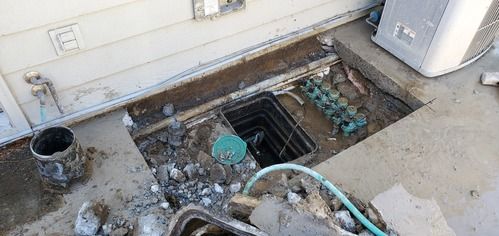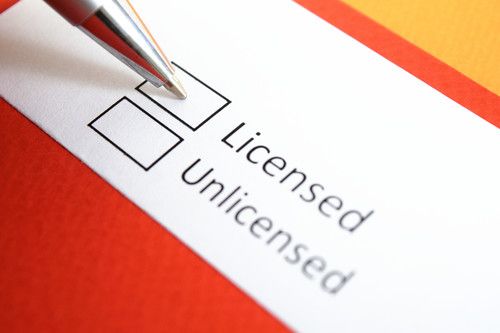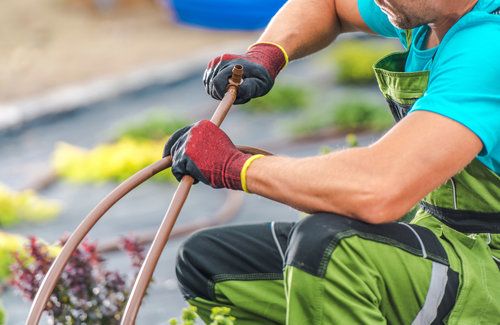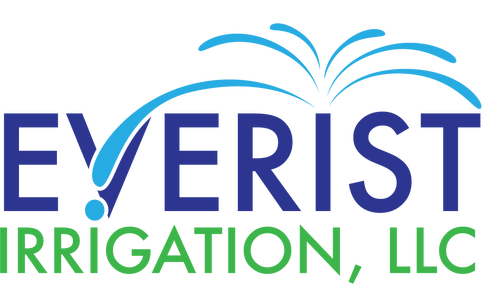The Ony 2 Reasons You Should Ever Consider Installing a Sprinkler System
Most homeowners have come to realize that the most streamlined way of caring for a landscape is to water by irrigating. Installing an irrigation system is an excellent way for property owners to save water, time and money. Thus making an irrigation system a true investment in the longevity of your landscape and improving the equity of your home.
As one would assume, however, not all irrigation systems are created equally. Careful consideration must be taken when deciding to install an irrigation system. Deciding who will install your irrigation system, should also be deemed a top priority. Some decide to go the DIY route, while more discerning owners decide to work with reputable, licensed and bonded professionals. For the vast majority of people, the advantages of working with a licensed irrigation contractor far exceed the cons and can prevent the need to spend more money in the future.
Still, many property owners wonder if installing an irrigation system is worth the sometimes hefty price tag. Let’s talk about why it’s worth considering.
As one would assume, however, not all irrigation systems are created equally. Careful consideration must be taken when deciding to install an irrigation system. Deciding who will install your irrigation system, should also be deemed a top priority. Some decide to go the DIY route, while more discerning owners decide to work with reputable, licensed and bonded professionals. For the vast majority of people, the advantages of working with a licensed irrigation contractor far exceed the cons and can prevent the need to spend more money in the future.
Still, many property owners wonder if installing an irrigation system is worth the sometimes hefty price tag. Let’s talk about why it’s worth considering.

1. Irrigating your lawn, garden or potted plants will save you precious time.
This may be the best reason why irrigation is so popular with property owners. Watering even a small front and backyard by hand can become extremely time consuming. Several factors will determine how much water your landscape needs and how frequently you will need to water, including:
The list goes on, but it’s fair to say that in the summertime you’ll spend more time watering than any other season. Most homeowners don’t want to spend their summer watering their grass, a garden or their 30 potted plants. If you live in a hot, humid part of the country irrigation might be your best bet, lest you lose your sanity and landscaping.
For systems that have been installed professionally, your entire system is primarily controlled via an irrigation controller, or commonly referred to as an “irrigation timer.” Irrigation controllers have become quite advanced over the years, albeit the implementation of these advancements is still taking a while to catch on. This isn’t because they are not worth investing in but simply because, well, most homeowners don’t know they are available. Secondly, if it isn’t broken, why fix it? Current and new irrigation owners should most certainly consider these valuable irrigation upgrades. Some advancements include rain sensors, soil sensors and wifi pairing which allows you to control your system remotely. Rain sensors are great for avoiding the need to constantly adjust your controller during the spring and fall when rainfall is more likely, while the ability to water and monitor water usage remotely is perfect for those of us that travel frequently.
- Where you live
- The current season
- The type of sod you have
- Whether your landscape contains native plants versus non-native plants
- The water-retaining capabilities of your soil
- The square footage of the area to be watered
- Sun exposure - Full Sun, Part Sun, North, South, East, West, etc
The list goes on, but it’s fair to say that in the summertime you’ll spend more time watering than any other season. Most homeowners don’t want to spend their summer watering their grass, a garden or their 30 potted plants. If you live in a hot, humid part of the country irrigation might be your best bet, lest you lose your sanity and landscaping.
For systems that have been installed professionally, your entire system is primarily controlled via an irrigation controller, or commonly referred to as an “irrigation timer.” Irrigation controllers have become quite advanced over the years, albeit the implementation of these advancements is still taking a while to catch on. This isn’t because they are not worth investing in but simply because, well, most homeowners don’t know they are available. Secondly, if it isn’t broken, why fix it? Current and new irrigation owners should most certainly consider these valuable irrigation upgrades. Some advancements include rain sensors, soil sensors and wifi pairing which allows you to control your system remotely. Rain sensors are great for avoiding the need to constantly adjust your controller during the spring and fall when rainfall is more likely, while the ability to water and monitor water usage remotely is perfect for those of us that travel frequently.

2. Watering by use of an irrigation system will save you money.
An irrigation system isn’t only great for saving you time, it will also save you money. You won’t have to worry about paying a landscaper, neighbor or friend to drop by to water your plants and lawn while you’re out of town. We in the industry like to call this, “hiring a neighbor to kill your lawn and potted plants,” as this is a common occurrence.
Water is also likely one of your most costly utilities every month, especially in the summertime. As one of our most precious resources, water should be utilized with care and consideration. By taking advantage of the advancements that have been made in the irrigation industry you can help to conserve more, and consequently, reduce your water bills.
Another great benefit of irrigating—versus meticulously trying to set up cheap and wasteful oscillating sprinklers or hand-watering—is that everything can be watered separately on its own timer. The watering needs of your plants is absolutely going to be different from the watering needs of your lawn. Installing a combination of both drip irrigation and lawn sprinklers on different zones makes it possible to get every plant and patch of grass watered with less water waste.
Drip irrigation is exactly what it sounds like; the water comes out as a trickle from a hose and allows your garden, trees, shrubs and potted plants to slowly absorb the water being supplied. This results in less water runoff.
Lawn sprinklers are perfect for watering large, grassy areas. There are many different types and each has its pros and cons. Some of the options you’ll find include:
We won’t get into all of the options you have for hardware as there is a ton of information out there, but you’ll want to familiarize yourself with the various products on the market so you can make the right choice for your landscape. Conversely, as you’ve likely guessed, poorly installed irrigation systems can waste a significant amount of water so it’s also wise to create a thorough map of your irrigation needs before any installations are made. You can do this by deciding which plants will go where and making note of how much water they will need. Decide where you will lay sod and make note of which areas are getting sun and which areas are shaded.
Water is also likely one of your most costly utilities every month, especially in the summertime. As one of our most precious resources, water should be utilized with care and consideration. By taking advantage of the advancements that have been made in the irrigation industry you can help to conserve more, and consequently, reduce your water bills.
Another great benefit of irrigating—versus meticulously trying to set up cheap and wasteful oscillating sprinklers or hand-watering—is that everything can be watered separately on its own timer. The watering needs of your plants is absolutely going to be different from the watering needs of your lawn. Installing a combination of both drip irrigation and lawn sprinklers on different zones makes it possible to get every plant and patch of grass watered with less water waste.
Drip irrigation is exactly what it sounds like; the water comes out as a trickle from a hose and allows your garden, trees, shrubs and potted plants to slowly absorb the water being supplied. This results in less water runoff.
Lawn sprinklers are perfect for watering large, grassy areas. There are many different types and each has its pros and cons. Some of the options you’ll find include:
- Spray Heads - Spray heads are great for well defined and angular areas. We typically use them for smaller lawns and larger shrub beds.
- Rotary Sprinklers - Rotor heads come in many different sizes and distances with which they can distribute water. Rotors are used to irrigate medium to large lawns, sports fields and golf courses.
- Micro Sprays - Micro Sprays are great for small bed areas that need water broadcasted over the top. These are typically used for ground cover areas where you are looking for a plant to spread.
We won’t get into all of the options you have for hardware as there is a ton of information out there, but you’ll want to familiarize yourself with the various products on the market so you can make the right choice for your landscape. Conversely, as you’ve likely guessed, poorly installed irrigation systems can waste a significant amount of water so it’s also wise to create a thorough map of your irrigation needs before any installations are made. You can do this by deciding which plants will go where and making note of how much water they will need. Decide where you will lay sod and make note of which areas are getting sun and which areas are shaded.

Removed Valves encased in concrete that were leaking. Improper installation.
What does a poorly-installed irrigation system look like anyway?
Poorly-installed systems don’t always look janky. In fact, more often than not, they appear to work just fine. That is, until you try to make any changes or repairs. Because many homeowners have little to no knowledge of water velocity, friction loss or irrigation equipment, a lot can go wrong.
It is easy to overrun stations by installing too many heads or drippers on each zone. When this happens zones likely need to be split to ensure the right amount of water is being distributed to each sprinkler head/dripper.
Inexperienced contractors frequently buy the incorrect kind of piping when installing a “professional system.” Irrigation pipes need to be able to withstand high pressure and friction without breaking down prematurely. It is important to buy the right materials for the climate and terrain in your area. Homeowners down South aren’t at as much risk of bursting a pipe due to freezing temperatures, but homeowners in the North really need to do their research.
Some of the issues we have seen with DIY irrigation systems, or systems built by ill-informed contractors include:
Making changes to an inadequately-installed system can quickly become a headache. Despite a homeowner going the DIY route to try and save money, they are oftentimes forced to hire a professional in the end. We’ve seen it all; some common and expensive issues include:
If you're curious about what a backflow device is or what its primary function might be, you aren’t alone. There is a lot of mystery out there regarding these devices. Some counties or states require you to have a functional backflow device installed along with irrigation, while others do not. Either way, it is a smart decision to get a backflow device installed with your irrigation system. This is because a backflow device’s primary function is to protect the community’s drinking water. If you want to learn more about the importance of a backflow device or are curious about whether you should install one, check out our blog post: What Is The Cost Of Repairing A Failed Backflow.
A properly installed system should be easy to maintain and expand should the need arise. If you make the decision to purchase more plants or shrubs, adding an additional zone in the future shouldn’t be a problem if you are working with an experienced pro.
It is easy to overrun stations by installing too many heads or drippers on each zone. When this happens zones likely need to be split to ensure the right amount of water is being distributed to each sprinkler head/dripper.
Inexperienced contractors frequently buy the incorrect kind of piping when installing a “professional system.” Irrigation pipes need to be able to withstand high pressure and friction without breaking down prematurely. It is important to buy the right materials for the climate and terrain in your area. Homeowners down South aren’t at as much risk of bursting a pipe due to freezing temperatures, but homeowners in the North really need to do their research.
Some of the issues we have seen with DIY irrigation systems, or systems built by ill-informed contractors include:
- Incorrect use of irrigation piping, fittings, etc.
- Poor glue technique
- Low water pressure because wrong nozzles were used
- Water pressure that is too high - burst pipes!
- Missing backflow devices
- Water-puddling
- Wilting plants and dead trees
- Dry, brittle grass
Making changes to an inadequately-installed system can quickly become a headache. Despite a homeowner going the DIY route to try and save money, they are oftentimes forced to hire a professional in the end. We’ve seen it all; some common and expensive issues include:
- Rerouting the entire system
- Adding several zones
- Redoing wiring
- Installing backflow devices
- Replacing or repairing backflow devices or their components
- Flushing systems due to dirt and debris caught in the lines
- Tearing out sprinkler irrigation and adding drip irrigation, and vice versa
- Removing pavers to get to leaks or breaks
- Cutting away entire driveways
If you're curious about what a backflow device is or what its primary function might be, you aren’t alone. There is a lot of mystery out there regarding these devices. Some counties or states require you to have a functional backflow device installed along with irrigation, while others do not. Either way, it is a smart decision to get a backflow device installed with your irrigation system. This is because a backflow device’s primary function is to protect the community’s drinking water. If you want to learn more about the importance of a backflow device or are curious about whether you should install one, check out our blog post: What Is The Cost Of Repairing A Failed Backflow.
A properly installed system should be easy to maintain and expand should the need arise. If you make the decision to purchase more plants or shrubs, adding an additional zone in the future shouldn’t be a problem if you are working with an experienced pro.

What are the advantages of working with licensed irrigation professionals?
How many times have you purchased a cheap product only to be disappointed? You then later find yourself buying the more expensive—but superior and reliable—competing product. I can tell you that I personally have lost count of the number of times I’ve experienced this. It works the same for irrigation. Only in this case, you can’t return to the store with buyer’s remorse to request a refund. But don’t fret, finding a good professional, should you decide to go this route is relatively easy and there are several reasons to do so.
What to look for when hiring an irrigation contractor
Check to see that your chosen contractor carries a license.
You can search your state’s licensing board website for contractor information. Ensure you are spelling the name of the business or business owner correctly; sometimes the appropriate results won’t come back if anything is misspelled.
Does your irrigation contractor carry insurance?
It’s possible for you to look this up on the same site you would use to find out if your chosen professional has a license. It’s important to only work with someone that carries insurance, regardless of the deal you are getting. Remember, if it sounds too good to be true, it probably is. If you're iffy about the information you find, ask your contractor for proof of insurance, if he or she is unable to furnish proof quickly, run while you still can.
Make sure your contractor wants to look at your job before blindly giving you a quote. You’ve decided you don’t want to DIY your irrigation system, but you also don’t want to get taken to the cleaners. Make sure the person you’re working with takes a thorough look at your irrigation project. A real professional will take the time to walk you through the process and discuss with you the potential possibilities for your outdoor space.
If your contractor asks for any money upfront, make sure you get a receipt.
Some contractors will ask for down payments upfront. It is not unheard of for this to happen. Sometimes it is up to 50% of the total cost of your job, or more. This may seem like a great deal of money but parts and materials can get expensive for large projects. While it is okay to make a down payment—and this may seem obvious—make sure you get a detailed receipt or invoice for the down payment you are being requested to make. Some may get excited by getting what appears to be such a great deal that they are willing to forgo important paperwork. A signed contract in hand before any works begin is also a smart idea.
Working with a professional should be a smooth and relatively painless process. A few things to appreciate about working with someone that is licensed:
You can search your state’s licensing board website for contractor information. Ensure you are spelling the name of the business or business owner correctly; sometimes the appropriate results won’t come back if anything is misspelled.
Does your irrigation contractor carry insurance?
It’s possible for you to look this up on the same site you would use to find out if your chosen professional has a license. It’s important to only work with someone that carries insurance, regardless of the deal you are getting. Remember, if it sounds too good to be true, it probably is. If you're iffy about the information you find, ask your contractor for proof of insurance, if he or she is unable to furnish proof quickly, run while you still can.
Make sure your contractor wants to look at your job before blindly giving you a quote. You’ve decided you don’t want to DIY your irrigation system, but you also don’t want to get taken to the cleaners. Make sure the person you’re working with takes a thorough look at your irrigation project. A real professional will take the time to walk you through the process and discuss with you the potential possibilities for your outdoor space.
If your contractor asks for any money upfront, make sure you get a receipt.
Some contractors will ask for down payments upfront. It is not unheard of for this to happen. Sometimes it is up to 50% of the total cost of your job, or more. This may seem like a great deal of money but parts and materials can get expensive for large projects. While it is okay to make a down payment—and this may seem obvious—make sure you get a detailed receipt or invoice for the down payment you are being requested to make. Some may get excited by getting what appears to be such a great deal that they are willing to forgo important paperwork. A signed contract in hand before any works begin is also a smart idea.
Working with a professional should be a smooth and relatively painless process. A few things to appreciate about working with someone that is licensed:
- They are professionals that have invested time and money into obtaining a license; they care about doing things the right way.
- If they mess something up, or one of their employees messed something up, they will likely care about making it right.
- Most licensed contractors have legitimate work experience. This is to your advantage as they will be able to share their knowledge with you. Don’t be shy about asking for references.
- Most licensed contractors will warranty their work, including parts. This is because they purchase reliable, professional parts from reputable manufacturers.
- If you are unsatisfied with the work that was done, most reputable contractors will work with you; they want happy customers that will give them positive reviews.

We know making the decision to purchase irrigation is a big one for most people. We believe that investing in your landscape by purchasing an irrigation system is absolutely worth the time and effort that your system is sure to save you down the road.
If you’d like to talk more about the benefits of irrigation, give us a call. We are happy to answer any questions you might have about irrigation installation, materials or landscaping. If you’re located in Central Oregon, that’s our neck of the woods! You can call us to request a quote or fill out our online contact form.
For more information about all things irrigation, check out our blog!
If you’d like to talk more about the benefits of irrigation, give us a call. We are happy to answer any questions you might have about irrigation installation, materials or landscaping. If you’re located in Central Oregon, that’s our neck of the woods! You can call us to request a quote or fill out our online contact form.
For more information about all things irrigation, check out our blog!
Posted in Installation
Looking for something? Search here!
Categories
Recent
Understanding the Various Water Sources for Residential Irrigation Systems
February 13th, 2023
The Role of Soil Type, Climate, and Irrigation Scheduling in Residential Irrigation Design and Planning
February 13th, 2023
FAQ's about Winterizations:
October 7th, 2022
The Ony 2 Reasons You Should Ever Consider Installing a Sprinkler System
February 9th, 2021
What is a Man-Hour? [Explained]
January 24th, 2020
Archive
2023
2022
October
2020
January
2019
